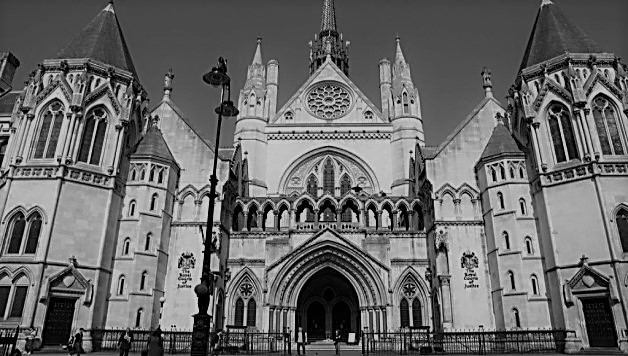In an important decision for franchisors and franchisees alike, the Full Court of the Federal Court has recently upheld a decision that the director and franchising manager of carwash franchisor Geowash Pty Ltd (Geowash) were knowingly concerned in Geowash’s contraventions of the Australian Consumer Law (ACL), including systematic unconscionable conduct, and the Franchising Code of Conduct (Franchising Code).
As yet another example of a “system case” brought by the Australian Competition and Consumer Commission (ACCC), the Full Court’s decision in Ali v ACCC confirms that the statutory conception of an unconscionable “system of conduct or pattern of behaviour” under s 21(4) of the ACL offers regulators a powerful tool through which to address systematic corporate misconduct and dishonest business practices.
The Full Court’s decision to uphold the imposition of penalties totalling $4.2 million, banning orders and $500,000 partial redress is also a timely reminder for franchisors — and their directors and officers — of the potential consequences associated with contravening the ACL and the Franchising Code.
Background — the ACCC’s case
Between 2013 and 2016, Geowash marketed and sold carwash franchises across Australia. Geowash would provide prospective franchisees with a franchisee agreement and a disclosure document. Each of these documents contained a term to the effect that Geowash could recoup the actual costs of the fit-out of the franchisee’s site from the franchisee. Geowash would represent to prospective franchisees that they would be charged for fit-out costs in accordance with these terms.
In reality, however, Geowash would negotiate with each franchisee on the basis that a franchise could be acquired for a lump sum and would seek to ascertain the franchisee’s “maximum budget” (i.e., the upper limit of what the franchisee would be willing to pay to acquire the franchise). Shortly after the franchise agreement was signed, Geowash would demand that the franchisee pay the “Purchase Price” in two staged payments. Should a franchisee question or object, Geowash would justify the Purchase Price as having been calculated by reference to the cost of fitting out and setting up the site when, in fact, it was simply determined by reference to the franchisee’s maximum budget.
Rather than being used for the fit-out and construction of the franchisee’s site, a significant portion of the funds paid by the franchisee would be appropriated by Geowash’s sole shareholder and director, Ms Ali, and its franchising manager, Mr Cameron, who would pay themselves large “commissions”. In some cases, the site selected for the franchisee’s business was never developed.
Primary Judgment
Following an investigation into complaints made by Geowash franchisees, the ACCC commenced proceedings against Geowash, Ms Ali and Mr Cameron, alleging that Geowash’s dealings with franchisees constituted misleading or deceptive conduct (contrary to ss 18 and 29 of the ACL), unconscionable conduct (contrary to s 21 of the ACL) and a failure to act in good faith towards franchisees (contrary to cl 6 of the Franchising Code). The ACCC also alleged that Ms Ali and Mr Cameron were knowingly involved in Geowash’s contraventions.
The primary judge substantially agreed with the ACCC’s case, including that there was a systematic unconscionable conduct affecting all franchisees, that some (but not all) of the alleged representations were misleading or deceptive and/or false, and that conduct with respect to some (but not all) franchisees breached the good faith obligation in the Franchising Code. The Court described Geowash’s business model as “inherently dishonest” and Ms Ali and Mr Cameron as the “architects”. His Honour ultimately imposed pecuniary penalties totalling $4.2 million, made banning orders against Ms Ali and Mr Cameron, and ordered the payment of partial redress to franchisees.
Appeal to the Full Court of the Federal Court
With Geowash in deed administration, Ms Ali and Mr Cameron appealed to the Full Court, seeking to overturn the primary judge’s findings in relation to liability, as well as the penalties and relief imposed.
The central ground of appeal challenged the primary judge’s conclusion that Geowash had engaged in an unconscionable “system of conduct or pattern of behaviour” contrary to s 21(4) of the ACL. As is common in system cases, the ACCC sought at first instance to prove the existence of an unconscionable system or pattern by leading evidence from, and in relation to, a subset of the alleged victims — in this case, seven franchisees with which Geowash had dealings.
On appeal, Ms Ali and Mr Cameron contended that the primary judge erred in extrapolating from the evidence of the seven franchisees to establish that Geowash had engaged in a system of unconscionable conduct with respect to all franchisees. The error was said to arise from the fact that the finding of unconscionability turned in each instance on the outcome of negotiations between Geowash and the franchisee, and the primary judge had only had regard to the negotiations involving the seven identified franchisees. In addition, the primary judge was said to have failed to identify “substantially common relevant characteristics” across all franchisees, as required by the decision of the Full Court in Unique International College v ACCC.
Allsop CJ, Besanko and Perram JJ disagreed. Noting at the outset that the primary judge’s findings were based not only on the evidence of the seven franchises, but on the “unreliable and false” evidence of Ms Ali and Mr Cameron, their Honours saw no issue with the primary judge’s approach. The primary judge was entitled to draw inferences about “a consistent pattern of conduct which was deceitful and dishonest”. The approach was not merely a matter of extrapolation and was not inconsistent with Unique.
The Full Court reiterated that the evidence demonstrated that it was Geowash’s very business model — of extracting large sums from franchisees by falsely representing to them that those funds would be used for a particular purpose when, in fact, the funds were used for Ms Ali’s and Mr Cameron’s personal purposes — that was unconscionable. Their Honours also confirmed that a pre-existing vulnerability or disability is not a necessary element of statutory unconscionability under s 21 of the ACL, in line with the Court’s recent decision in ACCC v Quantum Housing.
Ultimately, the Full Court dismissed the appeal and upheld the penalties and relief imposed by the primary judge.
Key Takeaways
The Full Court’s decision highlights:
- the continued willingness of the ACCC to bring “system cases” to address systematic unconscionable conduct;
- the nature, scope and extent of the evidence required to successfully prove such a system case;
- how a franchisor’s dealings with individual franchisees may be characterised as forming part of a broader system of misconduct;
- the potentially significant financial and non-financial penalties that businesses — and their directors and officers — face for contraventions of the ACL and the Franchising Code; and
- the need for franchisors to carefully consider representations made in the course of negotiations with prospective franchisees.
Image credit: Car Wash by bark / Creative Commons / CC BY 2.0 / remixed to black and white and resized







